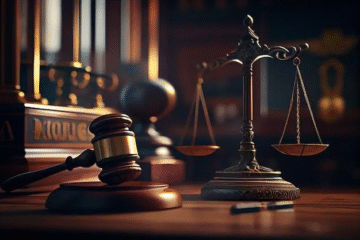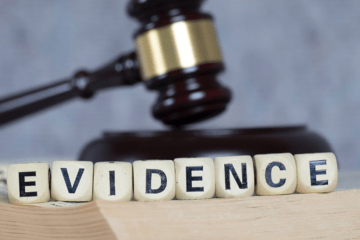
This article is written by Ritika Srivastava of Symbiosis Law School, Hyderabad, an intern under Legal Vidhiya
ABSTRACT
This research article emphasises the vital role that witnesses play in court cases and how their evidence may greatly influence how a case turns out. This is why both sides in a lawsuit understand how important it is to get witnesses on their side, and they may use unethical tactics like bribery or emotional blackmail to coerce witnesses into changing their evidence. Witness protection and the assurance that they can testify without fear of reprisal are two of the strategies and processes implemented to solve this problem. For example, witness protection programmes offer financial support, relocation, security, and a secure atmosphere for witnesses and their families. Furthermore, it is against by law in some nations to threaten or injure witnesses. The study also highlights how witnesses should be handled with care and consideration since they can be traumatised by what they saw or worry for their safety. As a result, it is crucial that legal experts treat witnesses carefully and give them the assistance they need throughout the court proceedings. As general, witnesses are essential to judicial procedures, hence it is critical to keep them safe from damage or intimidation of any kind. judicial systems may guarantee that witnesses can testify freely and fearlessly by putting in place the proper plans and processes, which will advance justice and fairness in the judicial system.
KEYWORDS
Witness, Protection, Program, Scheme, Legal Proceedings, Testimony, Crime
INTRODUCTION[1]
The established principle of criminal law is that witnesses portray major and most important part in determining the outcome and guaranteeing administration of justice. A witness is, in the simplest and most fundamental sense, somebody who has knowledge of an occurrence. Though they are aware of their significance, eminent legal scholars like Jeremy Bentham have referred to it as organs like eyes as well as ears of justice. It is impossible to overestimate the role that witnesses play in the criminal justice system. They provide as the moral backbone and foundation of the legal system. Witness testimony is vital to the cause of bringing victims’ justice. By providing testimony in court, witnesses carry out a “sacred duty”. Witness may provide testimony and evidence, which makes them crucial to the investigation and prosecution of crimes. But witnesses often face grave risks and challenges, including as intimidation, retaliation, and fear for their own and their families’ safety. These risks deter prospective witnesses from providing testimony, which might lead to a lack of information and faulty trials. Recognising the importance of witness cooperation and protection, governments all around the world have established programmes for witness protection. To protect witnesses, a secure environment must be established for them, and their involvement in legal proceedings must be encouraged. By alleviating their fears and removing any barriers from their path, programmes aimed at protecting witnesses are intended to increase their willingness to testify and support the administration of justice.
In order to warrant safety of witnesses and also to increase public trust in criminal justice system, protection of witness and laws associated with it are fundamental. The criminals may escape justice if the government fails to offer witnesses safety. If mandatory legal safeguards for witnesses are not in place, then offenders will continue in dodging liability for crimes they committed. The international community has made major responses with regard to witness protection regulations, particularly in industrialised nations. Many countries implemented witness protection legislation decades ago, including the US, Australia, Canada, and other countries. Bangladesh and India, in comparison, lack comprehensive and unique legislation protecting witnesses.
WHO IS A WITNESS?
“A person who gives evidence in a cause and is impartial towards either party, sworn to speak the truth and nothing but the truth,” is what Oxford Dictionary describes as witness.
The types of witnesses can be classified as:
Eye Witness: It is a person who learned about any problem in question via their own senses. They are sometimes referred to as percipient witnesses.
Expert Witness: It is a specialist with more than sufficient expertise in a particular subject who testifies as an expert witness to support other relevant evidence.
Crown Witness: It is a former criminal collaborator who provides evidence against other defendants accused of the same act in exchange for a lesser sentence.
IMPORTANCE OF WITNESSES:
All individuals who are acquainted with criminal jurisprudence would concur that witnesses play a crucial role in guaranteeing the smooth operation of the trial. They are, in the words of many jurists, “foundation” of any of trial, whether civil as well as criminal, upon which the outcome of any case rests. But as this research has covered extensively, it is evident that testifying in important instances has its own set of difficulties.
NEED FOR PROTECTION PROGRAMS FOR WITNESSES:
Witnesses nowadays deal with a lot of difficulties by themselves. They generally entail severe offences like as assaults, sexual offences, fraud, etc., as it all essential to decide outcome of any of trial happening among parties. The possibility of inducements, intimidation, political pressure, witness animosity, corruption, and other negative experiences being experienced by witnesses is increased in such cases.
As a result of these pressuring incidents, witnesses become unwilling to provide depositions in court and withdraw from previous interviews, which taints the entire trial and eventually results in a miscarriage of justice.
WITNESS PROTECTION PROGRAMS IN INDIA:
Unlawful Activities (Prevention) Act, 1967[2]:
Section 44 of the Unlawful Activities (Prevention) Act, 1967 addresses the safeguarding of witnesses. It states that when a court determines that a witness’s life is in danger and has good grounds to think so, it can take appropriate action to protect the witness’s name and address. The court’s justifications must be documented in writing. The clause further states that the proceedings may take place somewhere else and that no names or other personally identifiable information may be spoken when decisions, judgments, or instructions are being given during the case hearing in means to safeguard identity of those witness. Anyone found guilty of breaking any of the rules faces a minimum three-year jail sentence in addition to fine.
National Investigation Agency Act of 2008[3]:
Section 17 of the National Investigation Agency Act of 2008, addresses witness protection. In addition to having requirements that are exactly the same as those found in Section 44 of the UAPA, the section forbids the publication of any sensitive witness’s name or personal information, even when doing so serves the public interest. Any violation of this section’s requirements carries a punishment of one thousand rupees along with three years in jail.
Code of Criminal Procedure, 1973[4]:
According to Section 195A of the 1973 Code of Criminal Procedure, anyone who threatens someone with harm to themselves, their property, or their reputation in an attempt to force them to give a false statement faces up to seven years in prison, a fine, or both.
Law Commission’s 198th report, “Witness Identity Protection and Witness Protection Programme,”:
It recommended that the nation establish a WPA at every stage of a trial, including the investigation, the start and continuation of legal proceedings, and the announcement of a verdict. This was accomplished with the foundation of the Witness Protection Bill, 2015:
This suggested setting up cells for protection of witness, whose job it would be to gather data and prepare a report that would be submitted to the judge for review. Any witnesses in the programme would then be eligible for protection. In order to achieve the objectives of the Witness Protection Programme, it also stipulated the creation of, National Witness Protection Council and State Witness Protection Councils. Also, this report recommended strict penalties for violators of the Act, as well as measures to protect the witness’s identity and allow cases to be transferred from the original jurisdiction so that the witness could testify without restriction.
WITNESS PROTECTION SCHEME, 2018[5]:
An important step in ensuring that witnesses may come forward and deliver testimony without fear of intimidation or violence is the introduction of the Witness Protection Scheme (WPS) by the Indian government in 2018. The programme offers financial aid, relocation help, identity protection, counselling services, and other protective measures to witnesses and their families who could be threatened or put in risk as a result of their testimony.
Nonetheless, the scheme’s execution and enforcement require enhancement. There have been incidents where witnesses who were protected by the state have suffered injuries or lost their lives, suggesting that more has to be done to guarantee their safety. The court system and the administration must endeavour to provide a secure atmosphere that encourages witnesses to come forward and offer testimony. This entails making certain that law enforcement organisations get sensitive and considerate witness handling training, and that witnesses are given sufficient assistance and protection by the judicial system over the course of the case.
Furthermore, it is imperative to raise public awareness of the value of witness protection and the repercussions of intimidating or threatening witnesses. This may be accomplished by running campaigns and implementing educational initiatives that increase public awareness of the vital role witnesses play in ensuring that justice is done as well as the necessity of keeping them safe.
In short, the Witness safety Scheme, 2018 represents a noteworthy advancement in the provision of sufficient safety for Indian witnesses. To properly implement and enforce the plan, though, there is still a long way to go. To ensure that witnesses may come forward and provide testimony without fear of intimidation or violence, as well as to raise public awareness of the significance of witness protection, cooperation between the government and the court system is required.
INTERNATIONAL TREATIES AND DECLARATIONS:
All over worldwide there are certain initiatives that has been taken to prevail governments in establishing similar protection laws at domestic levels too, for the well-being of their citizens, as protection of witnesses in furthering of justice is a question of protecting witness’s basic, fundamental as well as human rights.
The United Nations has established ‘Declaration of the Basic Principles of Justice for Victims of Crime and Abuse of Power’ in 1985. It requires states in protecting of the privacy of victims, families of victims, as well as witnesses, as also in minimizing inconveniences which shall happen to them, and in making sure that they are safe from any kind threats or getting intimidation from the accused or from their family.
The ‘United Nations Convention Against Trans-National Organised Crimes’, 2000 are required and of utmost importance in taking appropriate action for prevention of any sort of intimidation, threats, and retaliation against witnesses in criminal cases involving of crimes such as human trafficking, corruption, sexual assault, and other related offences.
CASE LAWS:
Zahira Habibullah Sheikh & Anr v. State of Gujarat & Ors[6]:
The Supreme Court has emphasised, rising necessity of witness protection in order to preserve the objective of holding free and fair trials.
Mahendra Chawla & Ors. v Union of India & Ors[7]:
The Supreme Court ultimately acknowledged, legality of the draft of the national government that is to say, Witness Protection Scheme, 2018, also directed other states to follow like until a Parliament-made legislation addressing the problem was implemented. The draft included clauses that covered the witness’s identity protection, relocation, and ongoing monitoring and evaluation.
CONCLUSION:
Witness protection laws have been long disregarded by India’s criminal justice system. The creation of WPS is a step forward for the evolution of the Indian legal system and the defence of human rights. Actually, the witnesses should be the centre of attention for the entire strategy. It should hold authorities accountable if they do not protect witnesses. It is crucial to have plans in place so that witnesses won’t need to request protection or worry about their safety all the time. Instead, it ought to inspire witnesses to come forward and provide proof against the guilty. As a result, the Indian constitution’s value of delivering justice will be upheld. The problems and difficulties related to India’s witness protection programme have been examined in this study work. After examining the context, importance, legal framework, global viewpoints, and suggestions, a number of important conclusions have been drawn. Witnesses in India confront several dangers and difficulties, including as intimidation, threats, and worries about their own and their families’ safety. In India, a major step towards resolving these issues and guaranteeing the security and involvement of witnesses in criminal procedures is the 2018 introduction of the Witness Protection Scheme. Since there are no comprehensive legislation pertaining only to witness protection in the current legal framework, there is a need for improved coordination, resource allocation, and training for those involved in witness protection.
Conclusively, resolving the issues and barriers related to witness protection is imperative to safeguard the rights of witnesses, enhance the criminal justice system, and advance the principles of equity, impartiality, and legal accessibility in India. By putting the proposed actions into practice, you may foster an environment where witnesses feel more secure and supported, promoting their active participation and upholding the justice system’s fairness.
REFERENCES:
- https://blog.ipleaders.in/witness-protection-programs-around-the-globe
- https://loksabhadocs.nic.in/Refinput/
- IJCRT2306881.pdf
- pib.gov.in/PressReleaseIframePage.aspx?PRID=1578108
- https://www.legalserviceindia.com/article/l259-Witness-Protection-Programme.html
[1] The Law Commission of India. (2004). Consultation paper on witness identity protection and witness protection Programme. Government of India. New Delhi: Government of India.
[2] Act No. 37 of 1967
[3] National Investigation Act, 2008 (34 of 2008)
[4] Code of Criminal Procedure, 1973
[5] Ministry of Home Affairs. (2018). Witness protection scheme, 2018. New Delhi: Ministry of Home Affairs.
[6] Zahira Habibulla H. Sheikh v. State of Gujarat (2004) 4 SCC 158
[7] Mahendra Chawla and Ors. v. Union of India (2019) 14 SCC 615
Disclaimer: The materials provided herein are intended solely for informational purposes. Accessing or using the site or the materials does not establish an attorney-client relationship. The information presented on this site is not to be construed as legal or professional advice, and it should not be relied upon for such purposes or used as a substitute for advice from a licensed attorney in your state. Additionally, the viewpoint presented by the author is of a personal nature.




0 Comments